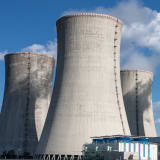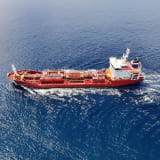
Plummeting temperatures in parts of east Asia have increased buyers’ interest to buy LNG, after generally mild weather in the last few months curbed appetite for the super-chilled fuel.
A few buyers in Japan, South Korea, Taiwan and China are currently interested in purchasing spot LNG cargoes for deliveries in January and February next year, with the recent cold weather having greatly boosted heating needs and drawn down LNG inventories. However, the extent to which stock levels have come down differs from buyer to buyer, leading to varying urgency to buy cargoes and firmness of requirements.
At least three second-tier Chinese companies have bought spot cargoes for deliveries from January to March next year recently, of which at least two purchases were done this week. Heavy snowfall over the last few weeks in the region that one of the companies supplies to has greatly boosted LNG consumption in the area, necessitating a replenishment of its LNG supplies. A few other Chinese companies are also enquiring for cargoes, but their demand largely remains opportunistic as alternatives, such as coal and pipeline gas, remain comparatively more economical than LNG.
The front-month price of the Platts Japan/Korea Marker (JKM) – the benchmark price for spot LNG deliveries to Northeast Asia – was last assessed at $12.443/MMBtu (January contract) on 15 December. While that is lower than the start of the month at $15.785/MMBtu on 1 December and $38.220/MMBtu exactly a year earlier on 15 December 2022, it remains higher than the target price for many Chinese buyers, who are eyeing a price level of around $8-9/MMBtu.
On 18 December, the Japan Meteorological Agency (JMA) issued warnings of heavy snow in Hokkaido’s Kamikawa and Rumoi regions and advisories of snowstorms in several regions in Hokkaido and Tohoku. The Korea Meteorological Administration also on 18 December predicted that temperatures in Seoul will fall to -13°C on 20 December from between -4°C and -6°C on 18 December. Meanwhile, temperatures in parts of China, including in Hebei and Liaoning, hit record lows of below -40°C on 17 December as a cold snap hit large parts of the country.
Market participants have said that temperatures will need to remain low for a prolonged period of at least two weeks to draw down inventories to a point that will push more buyers to emerge for several spot cargoes. Mild weather in Japan over the last few weeks had led to limited LNG use and higher-than-usual stock levels. Japan’s main utilities held 2.54mn t of LNG in their inventories as of 10 December, up by 16% from 2.19mn t a week earlier and 56% higher than 1.63mn t on 1 October, according to the country’s economy, trade and industry ministry.
Similarly, mild weather in South Korea before the recent cold snap, brisk deliveries of long-term cargoes, as well as prior spot purchases have kept stock levels in the country healthy and limited the need for spot supplies.
By Joey Chua, Market and Data Analyst, LNG, SSY
Articles
You may also be
interested in
View allGet in touch
Contact us today to find out how our expert team can support your business















